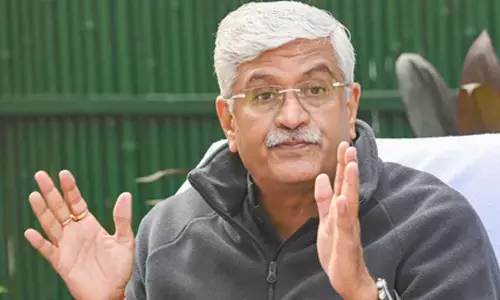Acknowledging stressors: The ways of crafting a new approach to fight stress

“It’s not stress that kills us, it is our reaction to it.” – Hans Selye
Modern life is characterised by an overwhelming presence of tensions. We stay in highly dynamic and competitive environments, always playing catch up with an idealized perception of how life should be and are encountering unprecedented challenges as a race, and all of it invariably leads to the most ubiquitous phenomenon of our times: stress.
While there is a tremendous amount of talk about the need to combat stress, there is little definitional clarity on what stress is. As the non-profit The American Institute of Stress, working towards producing research on stress and mental health notes, the aforementioned phenomenon has no singular definition and as the institute states, since there has been no definition of stress that everyone accepts, therefore, it's difficult to measure stress if there is no agreement on what the definition of stress should be. What is to be done in a situation like this? Can we soldier on with a quest to fight stress even as we have no consensus on what it truly means?
A good place to attempt answering these questions is to acknowledge that stress is not a homogeneous phenomenon. While it might cause distress in several situations, observers have also identified a healthy presence of stress which boosts productivity. The causes of stress alongside the consequences of it are as diverse as it can get and therefore, we need to revise our approach towards combating it. Instead of focusing on and taking on the undefined, amorphous challenge of stress, we can take a look at what causes it and the particularity of every instance of stress. In other words, a comprehensive way to go about stress is to take cognisance of stressors.
Stressors are commonly defined as agents, stimuli or events which cause stress to an entity. When we do feel under duress, instead of thinking about the larger narrative of stress, paying heed to the specific situation under which we encounter it can be helpful. Alternatively, coming to grips with the stressors that trouble you can be instrumental in dealing with the stress that bothers you. It enables you to respond, not react and to attempt resolving an issue and not getting overwhelmed by it.
Some instances can make the aforementioned proposition clearer. There are all sorts of stressors, including chronic stressors which are caused by sustained presence in tense situations, such as the cost of living life today itself, with endless bills to pay, numerous responsibilities to carry out and deadlines to meet. When you realize that what is bothering you is a chronic stressor, you can work towards alleviating it decisively, making changes that alter your life itself, such as changing a job or demanding a better work environment or discussing your needs for emotional support with your family. Similarly, if you are beset with acute or short term stressors, such as a sickness, then you can work towards curing it as well as building mental resilience to withstand similar situations in the future. If there are some personal triggers that derail your focus, you can seek professional mental health help and get better.
In short, when you take account of what is causing you mental trouble, you will not be haunted by a spectre you cannot make sense of but look at a specific problem which can be solved, and that alone can bolster our war against stress. More than anything else, fighting stressors individually rescues us from myths of a one-time victory or recovery but tells us that life will continually pose challenges which will have to be dealt with and stress will keep appearing but has to be fought. This approach alone becomes the cornerstone of a pragmatic approach towards mental well-being.
On the whole, dealing with stress necessitates unpacking it, acknowledging the specificities of your circumstances and focusing on stressors. It is a practical approach to accept our shortcomings and anxieties and build a tough defense for dealing with difficulties as they arise and keep fighting the good fight for our well-being. Stress has to be repeatedly vanquished and for that fighting individual stressors is central to keeping ourselves prepared for fighting a never-ending but worthy battle in life, taking down one adversary at a time.
(The author is Chief Impact
Officer at Recykal Foundation)


















